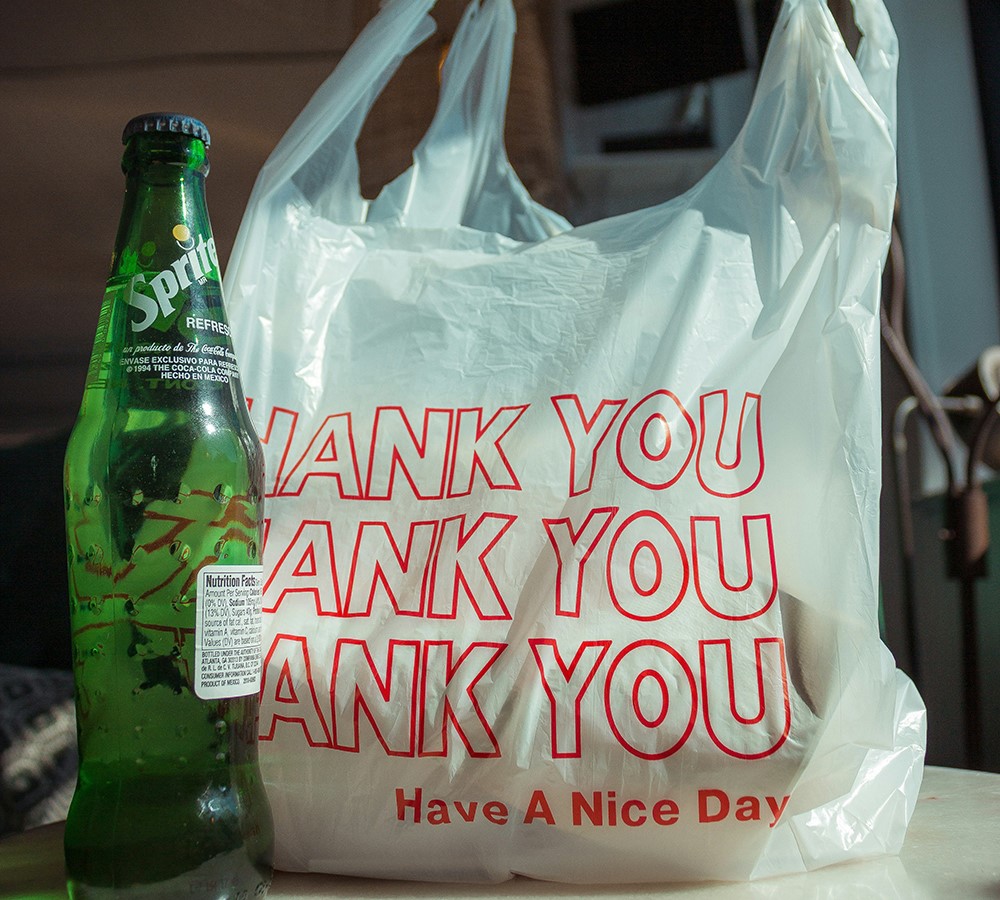Attorney General Rob Bonta announced on Oct. 17 that four manufacturers and the state had reached a settlement that will require them to pay more than $1.7 million for allegedly violating a 2014 law that requires carry-out plastic bags in grocers and other retailers to be recyclable. They have also agreed to stop selling plastic bags in the state. Bonta is suing three other companies that declined to settle. He says all the companies have made “misleading” and deceptive claims about their products’ recyclability.
The law is Senate Bill 270. It requires reusable grocery bags handed to customers at the point of sale to meet a number of conditions, among them “shall be recyclable in this state, and accepted for return at stores subject to the at-store recycling program.”
The grounds for banning plastic bags haven’t changed over the years. They enter the litter stream when they are inappropriately discarded, end up in landfills or are incinerated when they are.
The first is of course unacceptable. That’s why we have anti-littering laws. But there’s no tragedy in disposing of plastic bags in landfills. Yes, plastic doesn’t decompose as organic matter does. But it does break down “into microplastics which have been found in drinking water, food and the air we breathe.”
A couple of points:
One, burying plastic bags in landfills is not an environmental spoiler.
“Single-use plastic bags aren’t the worst environmental choice at the supermarket — they’re the best,” according to City Journal contributing editor John Tierney. They don’t take up much room, and for those worried about carbon dioxide in the atmosphere, they don’t emit gases because they don’t biodegrade.
Two, much of the microplastic found in the environment is there due to industrial nations’ obsession with recycling. “It Makes Microplastics By the Ton,” says the headline on a 2023 Inside Climate News article, which cites a study that found a single plastics recycling plant in the United Kingdom “produces as much as 3 million pounds of microplastics a year — and that’s with filtering.”
Plastics become microplastics when they are shredded, cut and washed with hot water.
Another study, this one conducted by “environmental engineers from the University of Wollongong” in Australia, discovered “that the current process of recycling plastic is creating and releasing more microplastics into the environment.”
The “(c)ommercial process for plastic recycling may have been emitting microplastics since its first use nearly half a century ago,” say the researchers, who suggest that “the most effective microplastics mitigation strategy is to pinpoint their sources and prevent their release.”
Or maybe bury them in a landfill?
The West’s blind but never-to-be-questioned commitment to recycling is also partly responsible for plastic found in the ocean. We send our refuse to developing nations and expect them to do our dirty work. But their stewardship of the garbage stream is sloppy. Eighty percent of mismanaged plastic waste that accumulates in the marine environment flows from 1,000 rivers, most of them located in the Philippines, India, China, Malaysia and Indonesia.
California’s fears of anything plastic, from bags to straws to cutlery and beyond, are not based on reason or logic but on an emotional appeal to environmental protection and a lack (or maybe even a rejection) of information. It’s a lousy way to make public policy but it is what we’ve come to expect from Sacramento.
Kerry Jackson is the William Clement Fellow in California Reform at the Pacific Research Institute and co-author of The California Left Coast Survivor’s Guide.


